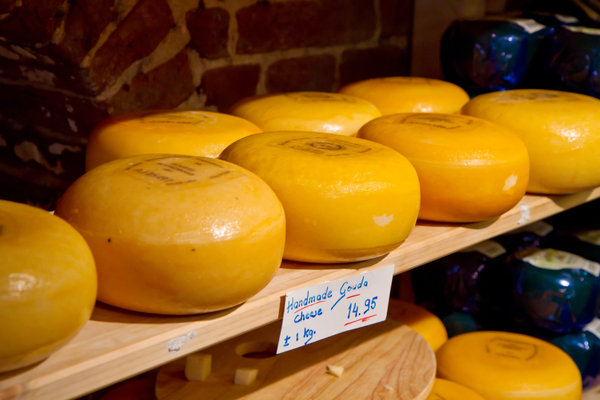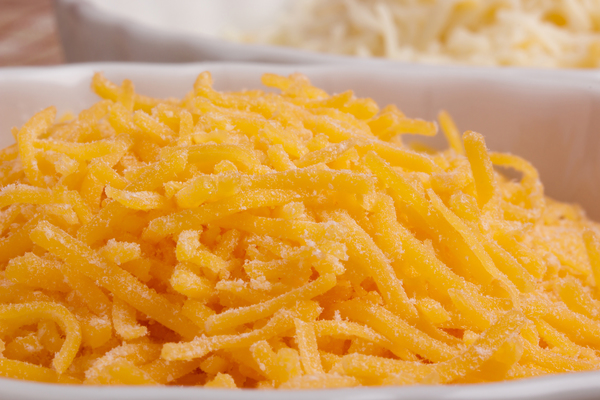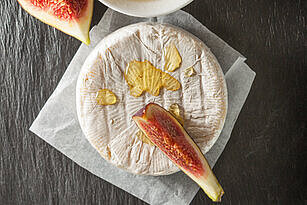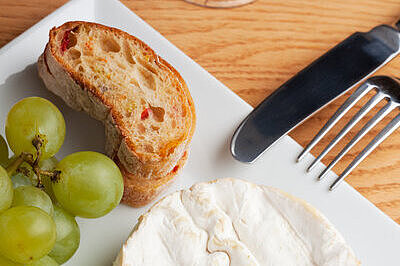Munster

Munster, not to be confused with the ghost house resident of the same name, is a type of cheese that causes a stir in some dog households. But while we humans love it for its strong flavor and creamy texture, the question is whether this cheese is also suitable for our four-legged friends. This article dives deep into the world of Munster cheese and sheds light on what exactly Munster is, as well as the potential pros and cons of its consumption by dogs.
What is Munster?
Munster is a soft cheese that originated in the Vosges, a region in Alsace, France. Munster is characterized by its strong smell and distinctive taste, which make it a favourite among cheese lovers. It is made from cow's milk, which gives it a creamy texture. Munster has an orange rind, which is the result of treatment with annatto, a natural colorant.
Munster: a treat for dogs?
The tasty side of Munster
At first glance, Munster could offer some benefits for dogs:
- Taste pleasure: Its strong flavor can be a welcome change, especially for picky eaters.
- Proteins and fats: As a dairy product, Munster contains proteins and fats which, in moderation, can help provide energy.
- Source of calcium: Like many cheeses, Munster can be a source of calcium, which is important for strong bones and teeth.
But caution is advised
Despite the potential benefits, there are some disadvantages to eating Munster:
- High fat content: Munster is very high in fat, which can lead to obesity if consumed regularly.
- Lactose intolerance: Many dogs are lactose intolerant, which means that eating dairy products can lead to gastrointestinal problems.
- Spices and ingredients: Certain Munster varieties may contain spices or other additives that are intolerable to dogs.
Should your dog eat Munster?
The answer to this question depends on several factors, including your dog's overall health and their tolerance to dairy products. Here are some guidelines:
- In moderation: Munster should only be fed in small amounts, if at all.
- Watch: Watch for signs of intolerance, such as stomach upset or allergic reactions.
- Look for alternatives: There are many dog-friendly treats that are specifically formulated for your four-legged friend's dietary needs.
An occasional treat with care
Munster can be a tasty treat for your dog in very small quantities and offered infrequently. However, it is important that you always keep an eye on your dog's health and well-being and ensure a balanced diet.
If you notice any signs of hypersensitivity or poisoning in your dog, you should see your vet immediately. We are not a substitute for a vet, but we try to be as accurate as possible. Every dog reacts differently and we recommend you get a second opinion or consult your vet if in doubt.
Stay healthy and take good care of your four-legged friend!😊
Similar to Munster
Gouda is a semi-soft semi-hard cheese from the Netherlands. It is made from pasteurized or raw cow's milk with the addition of rennet and lactic acid bacteria. The cheese mass is pressed into molds...
Cheddar is a hard cheese that is made by heating and pressing milk. The whey is separated and the cheese mass is pressed into molds. The cheese then matures for several months to years, depending on...
Brie is a soft cheese from the blue cheese family. It is made from pasteurized or raw cow's milk and mixed with lactic acid bacteria and mould. The mold rind forms during the ripening process and...
Camembert contains a number of nutrients that are important for dogs. These include Protein: Camembert is a good source of protein for dogs, helping to build and maintain muscles, skin, coat and...



